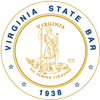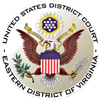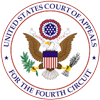Protective Orders
Emergency Protective Order (EPO): 16.1-253.4.
Preliminary Protective Order (PPO): 16.1-253.1.
Family Abuse Protective Order: Granted under Virginia Code Section 16.1-279.1.
Protective Orders (colloquially termed Restraining Orders) are consequential orders that prevent a defendant (or “respondent”) from doing, or not doing, certain acts that constitute “family abuse” as defined under § 16.1-228. Such conduct can be any act involving violence, force, or threat against a person (or their family or household members) such as, but not limited to, forceful detention, stalking, criminal sexual assault, or any criminal offense that results in, or places someone in reasonable apprehension of death, sexual assault, or bodily injury. If entered, such protective orders can be active for up to two full years!
Protective Orders can prevent a “Respondent” from contacting a victim and or their family and household members, either directly or indirectly. This means any defendant under court order cannot ask a family or friend to contact the victim on their behalf, under any circumstance or for any reason. In situations where family property (such as vehicles or homes) is involved, such orders require a respondent to give up a family vehicle or vacate the family residence to the exclusive possession of the victim. This also may include continuing to pay for rent or mortgage payments, utilities, car payments, and/or insurance payments of home and vehicles despite not having possession of said property. Additionally, if children are involved, the victim may be granted temporary custody of the parties’ minor children.
In divorce and custody cases, the entry of a protective order against any spouse or parent is potentially a gigantic tool for the prevailing parent/victim to petition a family judge why they should be granted full legal and/or physical custody of a minor child. A key component of protective orders in Virginia is that unlike criminal proceedings that require evidence and proof “beyond a reasonable doubt,” protective orders hearings only require a showing of “preponderance of the evidence” – in other words, “more likely than not” that the abuse occurred. As such, it is critical to contact an attorney to both attain or defend against claims of family abuse.
Protective Orders follow a process that requires an initial petition or issuing of an Emergency Protective Order (“EPOs”) or a Preliminary Protective Order (“PPOs”). The difference between the two matters only in how long they are in effect for (72-hours versus 2-weeks, respectively) in restricting an individual’s conduct. However, neither EPOs or PPOs can become permanent without a full evidentiary hearing in front of a judge to determine if the EPO or PPO should be extended to a maximum of 2 years. Such evidentiary hearings must typically be held within two weeks after an EPO or PPO is granted, leaving little time to gather evidence or seek legal representation. Experienced protective order attorneys can assist in all aspects of the process and create strategies regarding evidence and witnesses to present as such hearings.
At Kublan Khan, we understand the complex and time sensitive nature of protective order cases. Our experienced attorneys are dedicated to providing compassionate and effective legal representation for our clients. We provide expertise in family law, a personalized approach, strong advocacy, and collaborative support. By choosing Kublan Khan, you can rest assured that you will receive skilled legal representation and compassionate support during this difficult time. Contact us today to schedule a consultation and let us help you obtain the necessary protection for you and your family.














